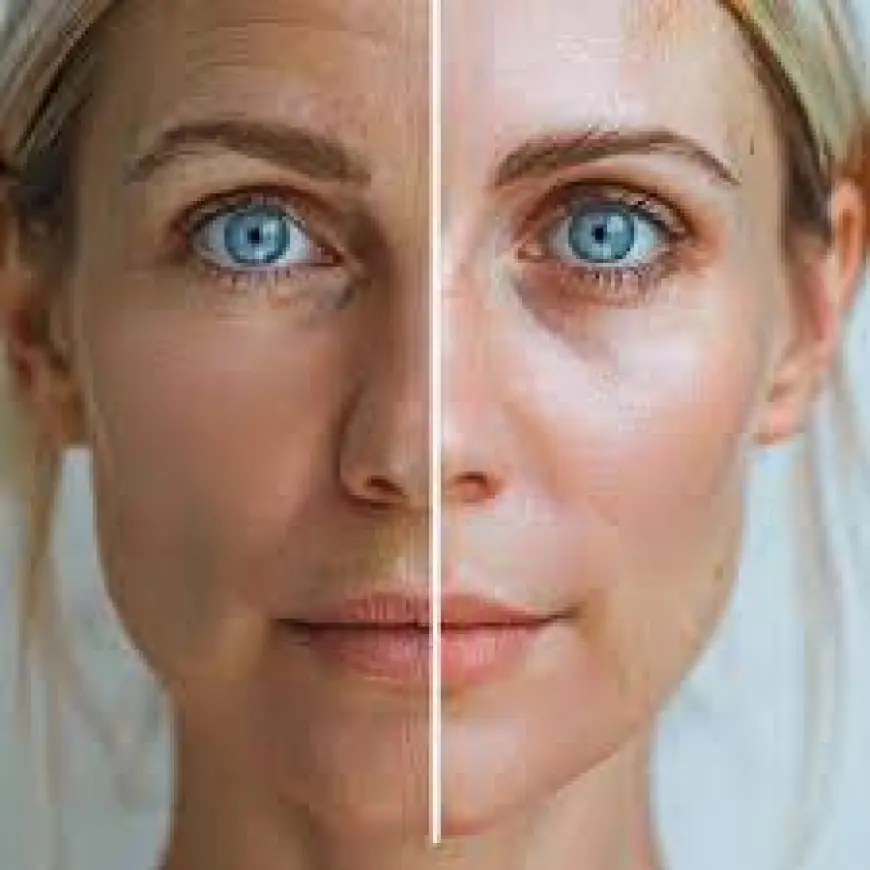Is Skin Rejuvenation Covered by Insurance?
Restore youthful glow with skin rejuvenation—fade wrinkles, tighten skin, and improve texture for a radiant, refreshed appearance.

As the popularity of cosmetic procedures continues to grow, a common concern many individuals have is, is skin rejuvenation covered by insurance? This question often arises when patients begin researching the potential treatments that can help improve their skin’s appearance and health. Skin Rejuvenation in Dubai(تجديد البشرة في دبي) includes a broad range of procedures designed to restore youthful skin, reduce imperfections, and enhance skin texture. However, navigating the topic of insurance coverage for such treatments can be confusing, especially because many options fall under the category of cosmetic enhancement rather than medical necessity. This article explores the subject in detail while also covering the importance, risks, benefits, and other frequently asked user queries about skin rejuvenation.
Why Skin Rejuvenation Matters for Many?
Modern lifestyles, sun exposure, pollution, and aging all contribute to visible signs of skin damage, including wrinkles, hyperpigmentation, dullness, and acne scars. This is where skin rejuvenation treatments become relevant. From laser resurfacing, chemical peels, and microdermabrasion, to newer technologies like radiofrequency skin tightening and PRP facials, individuals now have a wide array of options to choose from. These treatments not only address cosmetic concerns but also promote skin health by stimulating collagen production and improving cell turnover.
While they are largely considered aesthetic, some people turn to these treatments to manage skin conditions such as acne scarring, rosacea, or sun damage, which can significantly affect confidence and daily life. This leads to the debate on whether skin rejuvenation procedures should be viewed as medical treatments or cosmetic enhancements, especially when seeking insurance reimbursement.
Does Insurance Cover Skin Rejuvenation?
To answer the central question—is skin rejuvenation covered by insurance?—the short answer is generally no, unless the treatment is deemed medically necessary. Health insurance providers typically classify skin rejuvenation as an elective or cosmetic procedure. This includes popular options like:
-
Laser skin treatments
-
Botox for fine lines
-
Chemical peels for aging skin
-
Microneedling for enlarged pores
-
IPL (Intense Pulsed Light) therapy
However, there are exceptions. If a treatment is performed to correct a medical skin condition—such as reconstructive laser therapy for burns, or laser removal of precancerous lesions—it may fall under partial or full insurance coverage. The key determinant is whether the treatment has been recommended to resolve a functional or medical issue rather than for aesthetic enhancement alone.
Factors that influence coverage:
-
Diagnosis by a certified medical professional
-
Documented medical necessity
-
Pre-authorization or referral requirements
-
Medical history or skin trauma
Still, every insurance policy is different, and the only reliable way to determine potential coverage is to contact your provider directly and review your benefits in detail.
Understanding the Risks Involved:
Despite being non-invasive or minimally invasive, skin rejuvenation procedures are not without risks. Whether or not a treatment is covered by insurance, being aware of potential side effects can help set realistic expectations and ensure safe outcomes. Risks can vary depending on the type of treatment, skin type, and aftercare routine.
Possible side effects include:
-
Skin irritation or redness
-
Temporary swelling or bruising
-
Hyperpigmentation or light spots
-
Scabbing or peeling
-
Infection from improper post-care
Most side effects are mild and resolve within a few days. However, it's crucial to follow post-treatment guidelines and disclose any pre-existing conditions during the initial consultation to reduce risk.
Benefits Beyond the Cosmetic:
While the primary goal of Skin Rejuvenation(تجديد البشرة) may appear cosmetic, the benefits often go beyond appearance. Many people experience a significant boost in self-confidence and emotional well-being after undergoing treatment. In some cases, especially with individuals suffering from acne scars or pigmentation issues, skin rejuvenation can be truly life-changing.
Additional benefits include:
-
Stimulation of collagen production for firmer skin
-
Improved skin tone and texture
-
Reduction of fine lines and early signs of aging
-
Even skin pigmentation
-
Healthier skin barrier function
Such transformations can lead individuals to question why these procedures are not routinely covered by insurance—especially when the psychological benefits are substantial. Nonetheless, most policies still categorize them as elective.
Frequently Asked Questions (FAQs):
Can I claim insurance for laser treatment for acne scars?
Unless the acne scars are causing physical discomfort or are related to a diagnosed skin condition, laser treatments for scarring are typically not covered under insurance.
Are there skin rejuvenation treatments considered medical?
Yes, treatments performed for conditions like rosacea, melasma, or pre-cancerous lesions may be covered when recommended by a dermatologist or medical practitioner.
How do I check if my insurance covers skin rejuvenation?
Contact your insurance provider and ask whether they cover dermatologic treatments under “medical necessity.” You may be required to submit documents, referrals, or photographs.
Can HSA or FSA accounts be used for skin rejuvenation?
Some medically necessary skin treatments might qualify under Health Savings Accounts or Flexible Spending Accounts, especially if prescribed by a healthcare provider.
Is Botox for migraines covered, even though it's also used cosmetically?
Yes, Botox is a good example of a treatment used for both medical and cosmetic purposes. Insurance may cover it when used to treat chronic migraines, not for wrinkle reduction.
Are over-the-counter rejuvenation alternatives reimbursed?
Generally, OTC creams, serums, or facial tools used for rejuvenation are not reimbursed through insurance or FSA/HSA plans unless medically prescribed.
Conclusion:
In summary, the question is skin rejuvenation covered by insurance doesn’t have a one-size-fits-all answer, but it’s typically not covered unless there’s a clear medical necessity. Most skin rejuvenation treatments are considered elective, and patients should be prepared to finance them independently. However, understanding your policy, exploring exceptions, and discussing your condition with a qualified provider can help you explore all possible options. While insurance coverage may be limited, the long-term benefits of healthier, more radiant skin often outweigh the costs—making skin rejuvenation a worthy investment in both appearance and well-being.
What's Your Reaction?
 Like
0
Like
0
 Dislike
0
Dislike
0
 Love
0
Love
0
 Funny
0
Funny
0
 Angry
0
Angry
0
 Sad
0
Sad
0
 Wow
0
Wow
0

















































